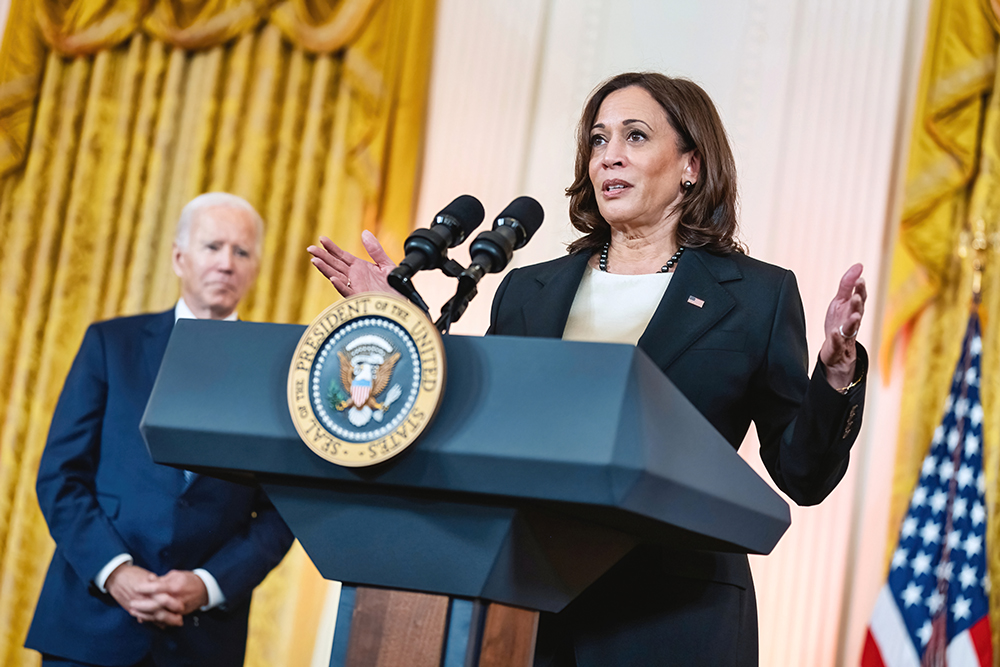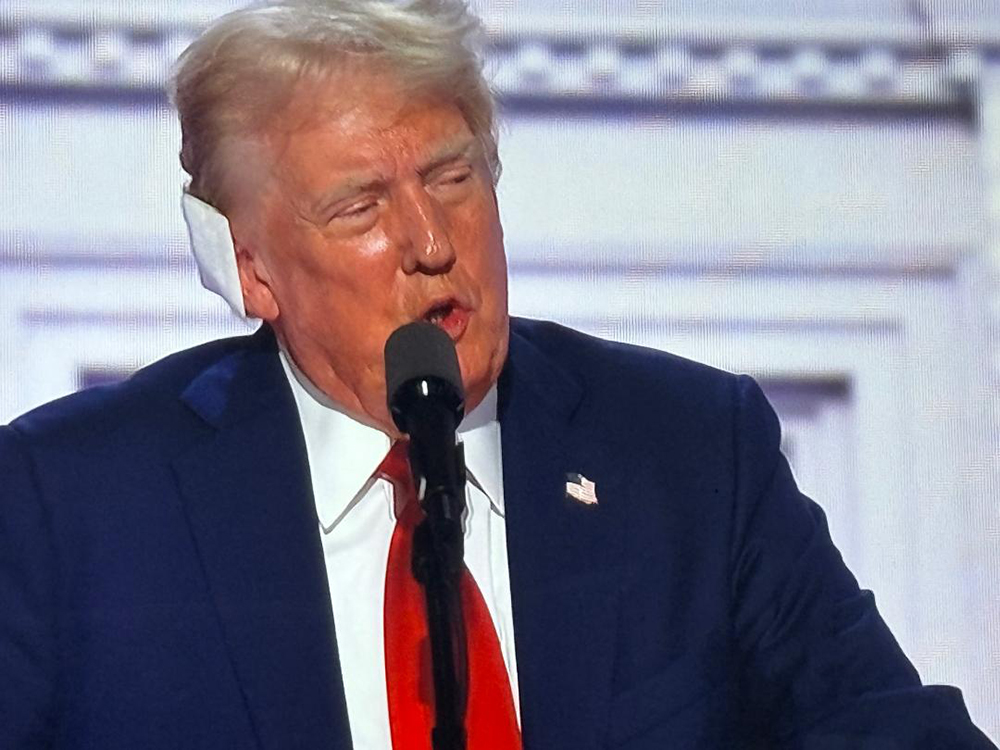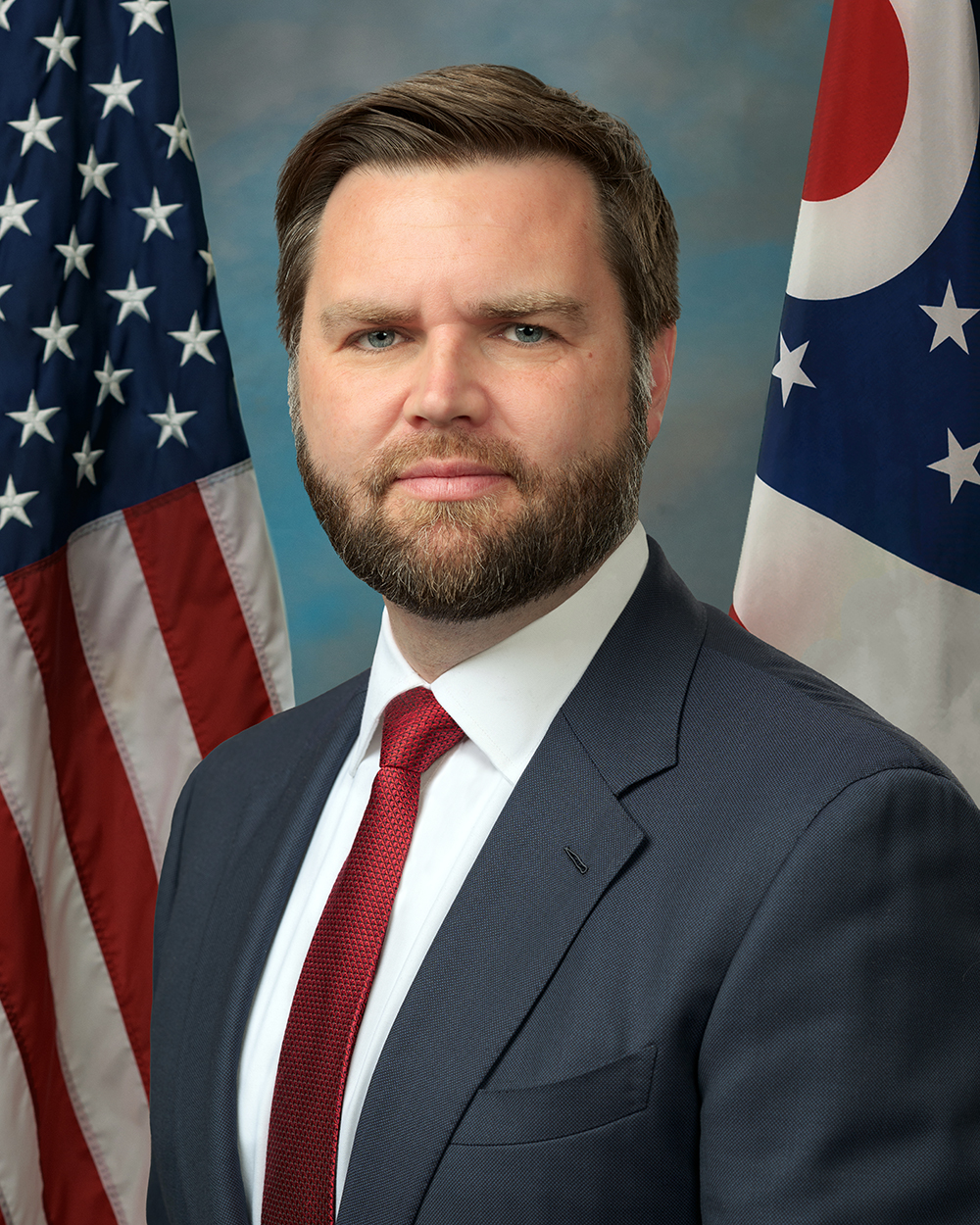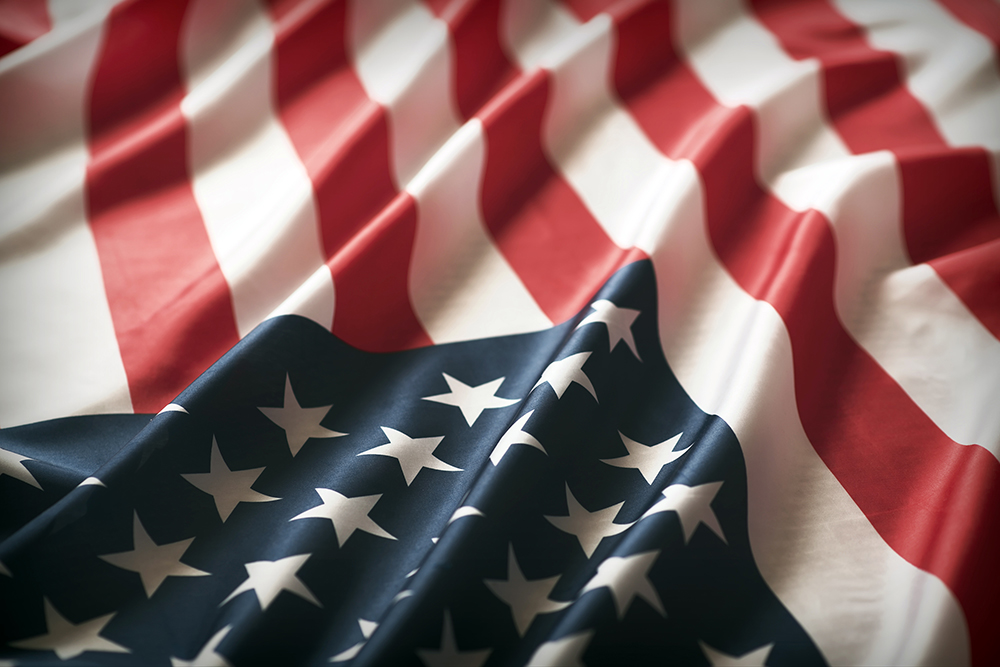Editor’s note: Our political columnist Jackson Baker and former Flyer writer Chris Davis traveled to Milwaukee, Wisconsin, last week for the Republican National Convention on Monday, July 15th, to Thursday, July 18th. For this story, Baker and Davis reflect on their experiences, giving light to the ever-changing political landscape.
No sooner had we begun to digest the facts and fallout from the Republicans’ just-concluded convention in Milwaukee than the prolonged drama in Democratic ranks regarding the status of the ailing and beleaguered President Joe Biden abruptly resolved itself with Biden’s withdrawal from the election on Sunday.
However much that action had been anticipated, it still cast a shade on the events in Milwaukee, and attention, for better and for worse, will continue to gather and focus on the coming Democratic convention in Chicago in August. The immediate consensus among participants and observers alike was that there will be no open convention in Chicago — rather, a closing of ranks and a conferring of the nomination on Biden’s vice president, Kamala Harris.

It is even possible that the Democrats could nominate a second woman — someone like the much-respected governor of battle-state Michigan, Gretchen Whitmer — to fill out their ticket as Harris’ running mate.
Whatever the case, various expectations have been turned on their head, and the over-the-top machismo of the Republicans’ convention, culminating with the final-night showcase appearances of Hulk Hogan and Kid Rock, may look, in retrospect, like a misfire.
All the more reason to look back on the Milwaukee convention, which had been studiously stage-managed to present the aura of inevitable triumph.

Against the memory of a doddering and fragile Joe Biden in the June 27th televised debate with former President Donald Trump, the Republicans could present the image of Trump as a hero-martyr, who, on the weekend before their convention, had risen after being felled by a would-be assassin’s bullet in Butler, Pennsylvania, to proclaim, “Fight! Fight! Fight!”
The donning of a conspicuously oversized bandage on Trump’s nicked right ear during the candidate’s public appearances in Milwaukee emphasized the degree to which the Republicans, understandably, expected to reap large symbolic dividends from the event.
On the opening night of their convention, last Tuesday, as on evenings to come, the Republicans, perhaps forgivably, would exploit Trump’s near-miraculous survival as a quasi-resurrection that reinforced what was already, here and there in his followers’ ranks, a near-messianic sense of the candidate.
And, though there was boilerplate aplenty served from the dais — regarding inflation, Biden’s presumed insufficiency, and other alleged shortcomings on the Democrats’ part — there were also overtures to voters presumed to be in the Democrats’ sphere of influence.
There was, for example, Teamsters president Sean O’Brien, who delivered a paean to the working class and denounced, in vivid detail, “greedy employers” and the evils of unbridled capitalism. It may have escaped most people’s attention that O’Brien did not explicitly endorse Trump; he merely expressed gratitude for being invited by Trump to address the convention. In a sense, he was more troll than Trumpian, but his participation in the GOP’s opening-night ritual was, ipso facto, an opening-out and an appeal to working-class voters.
The question rose uneasily to the minds of Democrats: Was it possible that a forthcoming realignment might occur as a benefit to Republicans, not themselves, the time-honored “party of the people”? And this concern could only have been deepened after remarks from the dais by one Amber Rose, a “model and TV celebrity,” as she was billed, and an ex-squeeze of Kanye West, no less, who professed herself a former “leftist” who could simultaneously praise Donald J. Trump and proclaim that Trump and his supporters “don’t care about Black or white or gay or straight. It’s all love.”
There were intermittent calls for national “unity” from the Republican stage, although, as these would be elaborated by Trump himself, notably in his later acceptance address on Thursday night, there were actually calls for the Democrats to surrender active resistance and to back away even from their forlorn hopes of salvation through acts of jurisprudence against Trump, most of those already all but scuttled by the Supreme Court.
Nor was there any mercy shown to President Joe Biden, who was subjected to patronizing remarks and Weekend at Bernie’s comparisons, alternating with chants of “Joe must go!” and claims that “He can’t even walk up steps and put on his own coat.”

Not that there weren’t signs of disunity among the Republicans themselves. The new party line on foreign affairs — articulated by both Trump and his hand-picked vice-presidential candidate J.D. Vance — was to jettison the nation’s present commitment to shore up Ukrainian resistance against Vladimir Putin’s invading Russian armies. But some of the speechmaking — notably from an old warhorse, former Speaker of the House Newt Gingrich, and from Trump’s own erstwhile Secretary of State Mike Pompeo — was still insisting on regarding Putin as an arch-villain and the Ukrainians as victims.
Trump was credited simultaneously with being the only hope of restraining Putin and the architect of peaceful coexistence with him!
Such contradictions may now be highlighted as the Republicans refocus to train their fire on Joe Biden’s putative successor, Vice President Kamala Harris, who is something of an unknown quantity to them — as she is, indeed, to most Americans.
She may become the target of Republican reproaches owing to her lackluster early efforts as Biden’s vicar for border issues, but her prominence as a spokesperson for women’s reproductive freedom will more than offset that perceived weakness and reactivate the militant reaction against the Supreme Court’s Dobbs decision.
Milwaukee was chosen as the site of this year’s Republican convention for the same reason that Democrats had wanted to convene there in 2020 before Covid-19 had nullified their gathering then. The city, a de facto distant suburb of Chicago, is a haven for the struggling middle class and is a key to the votes of Wisconsin, a rust-belt state that both parties consider a must-win in November.
Like Memphis, it is a bit ahead of itself, a place for logistical anomalies — like the hotel which housed the Tennessee delegation, containing a splendid water park but no gift shop. Forget your toothpaste and you’re looking at an Uber ride to make up the difference. But meanwhile you can dream.
For the space of a week, Republicans indulged in a dream of political supremacy over a disabled opposition. We — and they — are about to see whether that was fantasy or reality, as the Democrats, under new management, prepare to meet in Chicago next month.
— Jackson Baker
……………
On day three of the RNC Chuck Fleischmann, Tennessee’s 3rd District representative, caught a tingle. “There is a certain sense of vibrancy in this convention that I haven’t seen since I was a young man in 1980 for Ronald Reagan,” he said to applause from the Tennessee delegation, who gathered for a breakfast meeting at The Ingleside Hotel and Water Park, a good half-hour bus ride from the main event at Downtown Milwaukee’s Fiserv Forum. That’s one way of describing the weird feeling in Milwaukee, where a general avoidance of Downtown by locals made the high-energy convention seem like it was happening in a ghost town patrolled by squads of imported bicycle cops with little to do but ride around in big loopy circles.
TV ratings were disappointing. The convention’s opening night was strong enough that pundits were talking about the possibilities of a new political realignment. In spite of featuring the party’s most diverse lineup ever, viewership was down 25 percent compared to a high-water mark in 2016. Even with 25 million people tuning in for Trump’s speech on the final night, the overall numbers fell just short of 2020’s Covid-impaired convention. Protests in Milwaukee were modest and almost nonexistent after the convention’s first day. A smattering of charismatic street preachers remained, leaping and shouting their fiery messages about God and Trump, while a few dedicated liberal activists walked lonely beats with their handmade signs resting on slumped shoulders. Overall, the energy was pretty low for this sort of event, but inside the Fiserv Forum, a hard-working five-piece cover band called Sixwire kept things humming along with hits by Steely Dan, Loverboy, The Rascals, and REO Speedwagon while delegates on the floor and guests throughout the forum danced and prayed and waved their cowboy hats from side to side for the cameras and all America to see.

“We are the party of opportunity,” Fleischmann continued, back at the Ingleside, where there was no band and production values were less glamorous. “Race doesn’t matter. Gender doesn’t matter,” he said, naming two things that seemed to matter very much inside the Fiserv Forum, where delegates and guests can buy “Black Americans for Trump” stickers, and “Latino Americans for Trump” stickers, and “Women for Trump” stickers; and where, judging by reoccurring themes and enthusiastic crowd response, few things are worse than DEI, and nothing is more important than a willingness (the Republicans would say “ability”) to define what a man or woman is in the most simplistic terms.
Race has certainly mattered in Milwaukee, the swing-state city where the RNC chose to stage its big event. The city’s joint designations as the most segregated city in America and also one of the poorest, can both be linked to a legacy of redlining, and other race-based restrictions. But here I go missing the point.
It’s difficult to talk about what happened at the RNC, especially on the night of former President Donald Trump’s incredibly long and occasionally weird acceptance address, without falling into the fatal snare of fact checking. Trump, who boldly led the world into the post-truth era we currently occupy, made so many untrue statements he overwhelmed cable news resources who struggled to keep up an admirable exercise in futility. In a post-truth environment, facts will always matter less than feels, and right now the Right’s right to terrify immigrants with threats of mass deportation, and rattle the vulnerable, electorally insignificant trans community by insisting they don’t exist, makes our current GOP feel good enough about themselves to ignore that, even according to the very libertarian Cato Institute, Trump’s tax cuts skewed toward the rich and did none of the great things they were supposed to do.
No single idea presented onstage received more consistent applause than God, and outside of Trump, no single person received a bigger ovation than former Trump staffer and Project 2025 contributor, Peter Navarro, fresh from prison where he’d been cooling his heels following a contempt of Congress charge for refusing to provide documents and testimony relating to the January 6th insurrection. Tucker Carlson, the ex-darling of Fox News, might have gotten even more applause than Navarro had he not successfully petitioned the crowd to stop.
“God is among us,” Carlson concluded, following a gushing endorsement of the man he once claimed to hate “passionately.”
There are many layers to the RNC onion beyond what’s broadcast to the world. The friendly state delegation breakfast meetings are more intimate, and are often a place for more frank and practical conversations about what’s ahead. Mark Green, the embattled representative from Tennessee’s 7th District, wanted to make sure delegates understood what they were watching when the Supreme Court overturned the Chevron deference doctrine. He describes the decision as a victory over bureaucracy.
For 40 years, Chevron deference gave government agencies broad latitude to interpret ambiguous legal statutes and its dissolution puts a raft of public safeguards and environmental protections at risk. Green rejoiced in the decision to kill Chevron deference, and announced his plans to start rolling back regulations as quickly as possible
“The day of the hearing I dropped the ‘Save Us From the Chevron Deference Act’ [or the Sunset Chevron Act],” Green boasted. “It will repeal, in a rolling 30-day fashion, every single regulation passed under the Chevron doctrine.”
Inside the Fiserv Forum, wrestling icon Hulk Hogan ripped his shirt off and forcefully announced the arrival of “Trumpamania!” Back at the Ingleside Hotel, things were rarely so over the top, although 2nd District Representative Tim Burchett did say he believed America came one centimeter away “from full-blown Civil War,” when a lone gunman’s bullet grazed former President Trump’s ear in Pennsylvania. Inside the Fiserv Forum, Trump’s unfortunate and very nearly tragic brush with American gun violence is described as a holy miracle: proof of God’s divine purpose for the once and future leader of the free world. Back at the Ingleside Hotel, Chad Connelly, founder of the Faith Wins organization, showed the Tennessee delegation another way God works in politics.
“What if we go to churches in key precincts, get everybody to vote, and teach them to vote biblical values?” Connelly asked, recalling the questions he asked himself while figuring out how to “maximize” the Christian vote.
“I wasn’t going to push Republicans. I wasn’t going to push a candidate. I was going to push Christian values,” Connelly told Tennessee Republicans. By recruiting pastors to register voters and teach them to vote “biblical values,” Connelly says he helped to flip nine U.S. Senate seats in 2014.
“I believe a man named Jesus hung on a tree for me and for you,” Connelly said before announcing that he’s currently recruiting poll watchers to monitor elections in swing states like Nevada, Arizona, and Michigan. It’s not a hard job, he says. You only need to watch for voters over 100, and houses “occupied by more than six people.”
Representative Chuck Fleischmann was right about one thing: The 2024 RNC was a vibe. Almost mellow and with an eye for wholesale political realignment, it platformed unions, and women, and all kinds of Americans we’re not used to seeing at the RNC. With Christian Nationalism coming hard off professional wrestling’s top rope, it was also a camp masterpiece: a populist extravaganza with all the classic rock and J.D. Vance’s Mamaw’s 19 loaded handguns. Sure, the Nielsen ratings were low, but with President Biden exiting the race only weeks before the DNC, a “certain sense of vibrancy” may be all it takes to win the White House. — Chris Davis

